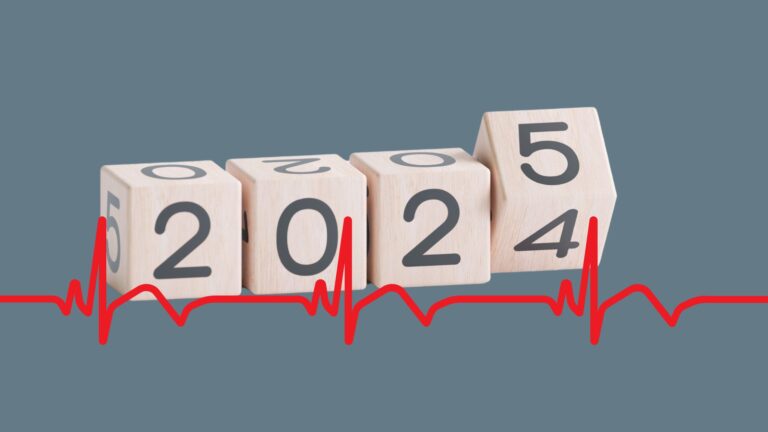For health plan operators and institutions providing medical services, such as hospitals and clinics, it is essential to have, at the tip of a pencil or on a computer screen, the economic cost involved in the entity's operations. This information, in addition to being important for maintaining the institution's financial health, also provides a basis for planning the next steps, allowing the manager to have more basis when making decisions.
In this scenario, cost reduction is a key point. In addition to improve revenue, it allows the entity to offer greater quality in patient care, enabling investment in new technologies, training and improvements to facilities.
With this in mind, in this post, we explain how health plan operators can reduce costs through health audits. Find out more below!
But, after all, what is a health audit?
In general, the audit process consists of evaluating the services of a given institution. It is a tool applied with the aim of verifying whether such an entity is acting appropriately.
In the health sector, medical service providers, such as hospitals, clinics and surgical centers, after providing certain services, such as exams, surgeries, consultations and treatments, pass on the value of the operation, as agreed, for the health plan operator.
Thus, the health audit, both for the operator and the service provider, consists of evaluating whether the processes were carried out correctly, that is, whether they are in accordance with what was established through the contract between the health plan operator health and the medical institution providing services.
Therefore, it ranges from requesting the patient's hospitalization to analyzing the medical bill generated at the end of the process.
How does it work in practice?
In practice, the medical audit is carried out by an auditor or an audit team. At the operator, the medical bill audit analyzes a series of documents, such as procedure guides, medical records and invoices, with the aim of optimizing the use of resources and checking whether the service provider's practices are in accordance.
Thus, in addition to offering a qualitative parameter for the institution, it also verifies whether the contractual clauses established between interested parties are being correctly applied, in order to reduce costs, optimize processes and improve service.
The health audit evaluates some points, such as:
- the quality standard;
- whether the procedures carried out by the institution are adequate;
- whether the procedures performed meet the patient's needs;
- whether resources, such as medicines, equipment and human resources, are being used correctly;
- the ethical conduct of the institution.
The tool also provides guidance on where the operator should focus improvements. Currently, the audit process is carried out with the help of software artificial intelligence. A good one IT infrastructure It is also of paramount importance to optimally deal with large volumes of data.
How can healthcare auditing help reduce costs?
Now that we understand how the audit process works, let's talk about how it can be applied to reduce costs in the health plan operator.
Keep an eye on material and medicines
The incorrect use of resources, such as medicines, biomedical equipment, disposable materials and cleaning and sterilization agents, can lead to unnecessary expenses on the part of the institution. To the failures, in this sense, occur for several reasons. Some of them:
- misuse of equipment;
- fraud or mismanagement in the acquisition of material;
- exams carried out that were not requested by the doctor;
- theft;
- loss of expiration date;
- excessive use or abuse of a certain resource.
In this sense, the auditor works by analyzing whether the quantities requested and the prices of the resources that were acquired are in accordance with the contract. To do this, he checks a series of documents, such as procedure authorization guides, medical records, receipts and invoices. For example: the audit verifies whether the institution carried out a certain exam or procedure that appears in the medical prescription.
The auditor is also responsible for checking the stock of a certain resource. Therefore, he analyzes whether it is appropriate to acquire new quantities. This way, it is ensured that medicines and materials are not wasted or required unnecessarily, optimizing the operator's cost.
Keeping an eye on the administration
In addition to correctly managing resources, such as medicines and medical materials, another key point in reducing costs for health plan providers is good administration. Thus, the health audit analyzes the efficiency of operator management.
Efficient internal processes, automation and reduction of unnecessary bureaucracy increase the institution's performance, making it better able to offer a quality service. In this way, the audit helps to optimize the operator's internal processes, helping to achieve better financial results.
Keeping an eye on the quality of service
Quality of care and patient experience are also key points in the institution's performance and, consequently, in customer loyalty. This, in turn, is important for the health plan operator because it guarantees greater financial stability.
Therefore, it is also the auditor's role to verify the quality of service. To do this, he must investigate the level of user satisfaction. In addition to the quality of services provided, humanization in healthcare and the ethical stance of professionals are important points to be analyzed.
Certain factors, such as the NPS (Net Promoter Score), offer a quantitative basis for analyzing the degree of customer satisfaction with the operator and can be used as parameters in the audit process.
Thus, we saw how important health auditing is in reducing costs, indicating key points for improvement and providing a basis for optimizing processes. Therefore, carrying out a quality audit is very important for the financial health of the health plan operator. Some technologies, such as management software, can be a good alternative to achieving excellence.
And there? Did you like the post? If you want to know more and get to know our medical bill audit software, contact us. We will be delighted to help you! ; )









